
Masaki: The Coastal Gem of Dar es Salaam
Masaki, a vibrant neighbourhood nestled on the eastern shores of Dar es Salaam, is a must-visit destination for tourists. Known for its upscale ambiance and scenic coastline, Masaki effortlessly blends modern luxury with the laid-back charm of Tanzanian culture. Whether you are looking to bask on pristine beaches, explore trendy cafes, or dive into the local arts scene, Masaki has something for everyone. Start your day with a visit to Coco Beach, a popular spot among locals and tourists alike. The soft sands and warm waters make it perfect for sunbathing or swimming. Nearby, you'll find an array of beachfront bars and restaurants where you can sample fresh seafood and sip on tropical cocktails as the sun sets over the Indian Ocean. Masaki is also renowned for its shopping and dining experiences. The Slipway, a waterfront complex, offers a diverse range of boutiques, craft shops, and eateries. Here, you can find unique souvenirs, enjoy world-class cuisine, and even take a boat ride to explore the nearby islands. For those interested in art, the Nyumba ya Sanaa arts center showcases works from local artists and provides a glimpse into Tanzania's rich cultural heritage. In the evenings, Masaki comes alive with a vibrant nightlife. From sophisticated lounges to lively nightclubs, there's no shortage of places to dance the night away or enjoy live music. With its beautiful scenery, luxurious amenities, and welcoming atmosphere, Masaki promises an unforgettable experience for every traveler.
Local tips in Masaki
- Visit Coco Beach early in the morning or late afternoon to avoid the crowds and heat.
- The Slipway is a great place for souvenirs, but don't miss out on the local artisan markets for unique crafts.
- Carry cash as some smaller shops and eateries may not accept credit cards.
- Watch the sunset from one of the beachfront bars for a truly memorable experience.
- Use reputable taxi services or ride-hailing apps for safe and reliable transportation.
Iconic landmarks you can’t miss
The Slipway
Explore The Slipway in Dar es Salaam—a perfect blend of shopping, dining, and breathtaking ocean views, showcasing the charm of Tanzanian culture.
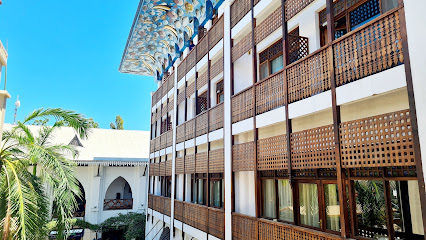
Askari Monument
Discover the Askari Monument, a historical landmark in Dar es Salaam honoring African soldiers of World War I amidst beautiful gardens and rich culture.
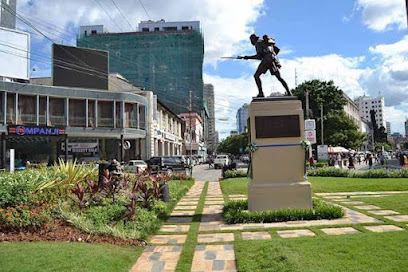
Uhuru Monument
Explore the Uhuru Monument in Dar es Salaam, a historic symbol of Tanzania's independence and cultural heritage, surrounded by beautiful gardens.
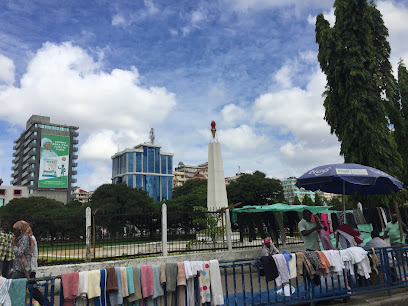
Coco Beach Cliff
Discover the breathtaking views and vibrant atmosphere at Coco Beach Cliff, a must-visit tourist attraction in Dar es Salaam, Tanzania.
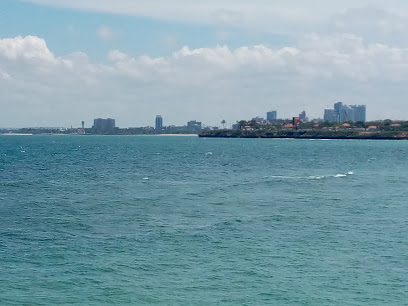
The Sea Cliff
Discover the tranquility of The Sea Cliff, a lush park offering stunning ocean views and a peaceful atmosphere in Dar es Salaam's coastal paradise.
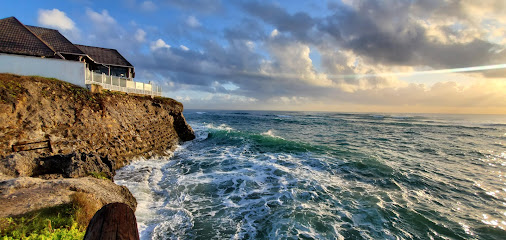
Dar es Salaam War Cemetery
Explore the Dar es Salaam War Cemetery – a serene memorial honoring the brave soldiers of World War I and II amidst the vibrant history of Tanzania.
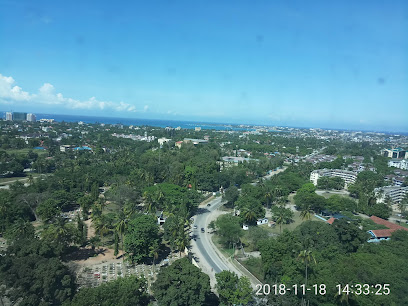
Lighthouse
Discover the rich maritime heritage and stunning views at the Lighthouse of Dar es Salaam, a must-visit historical landmark in Tanzania's vibrant capital.
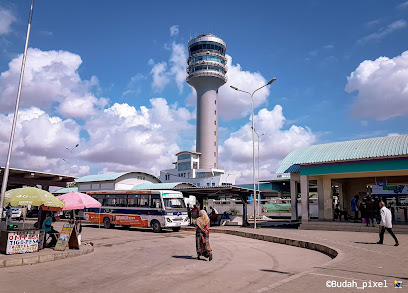
Baobab tree
Explore the Baobab tree in Dar es Salaam, a stunning natural landmark symbolizing the heart of Tanzania's rich biodiversity and cultural heritage.
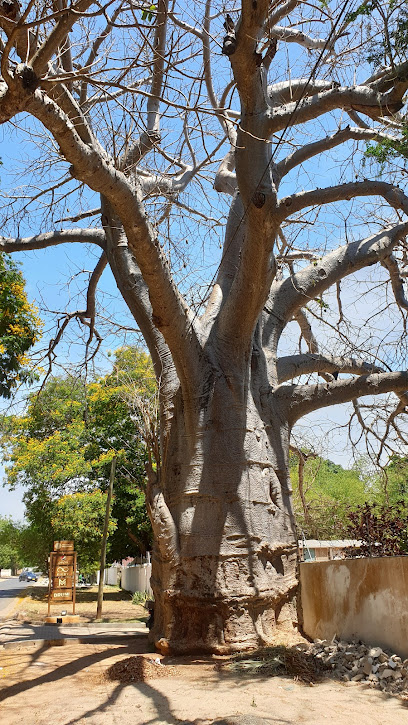
Paradise View in Tanzania
Explore Paradise View in Tanzania, a breathtaking hiking area offering stunning ocean views, lush landscapes, and a perfect escape from city life.
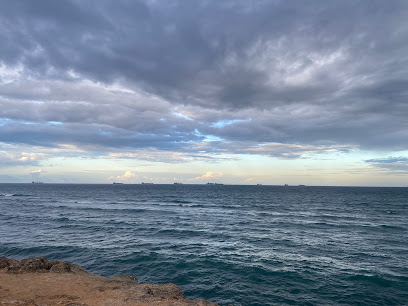
Mbuyuni tree
Explore the Mbuyuni Tree in Dar es Salaam—a historic landmark surrounded by lush landscapes and vibrant city life, perfect for relaxation and cultural immersion.
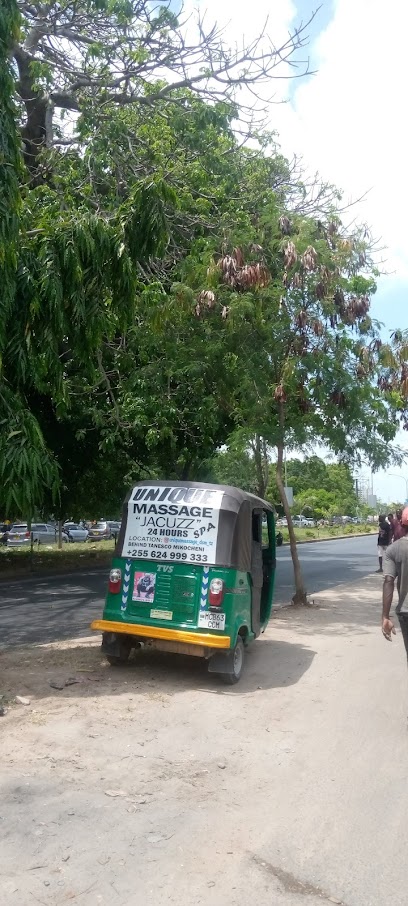
Mleke Family
Explore the Mleke Family historical landmark in Dar es Salaam, where Tanzania's rich cultural heritage comes to life in a unique and engaging way.

Unmissable attractions to see
Askari Monument
Explore the Askari Monument in Dar es Salaam, a historical landmark celebrating the bravery of soldiers and the rich heritage of Tanzania.
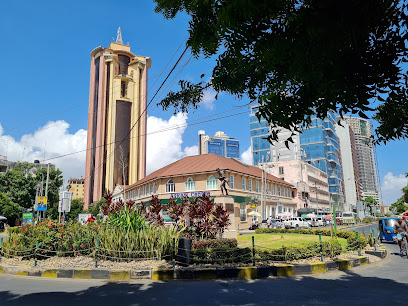
Jangwani Flood plain, Michikichini
Explore Jangwani Flood Plain, a natural oasis in Dar es Salaam, perfect for picnics, bird watching, and enjoying serene landscapes.
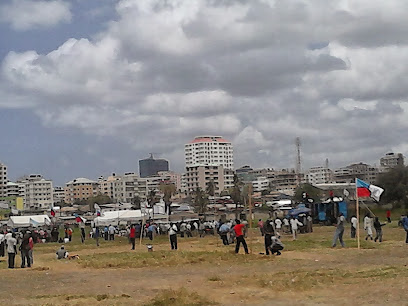
Dar Es Salaam Zoo
Discover the diverse wildlife at Dar Es Salaam Zoo, a top family-friendly attraction in Tanzania's vibrant capital.
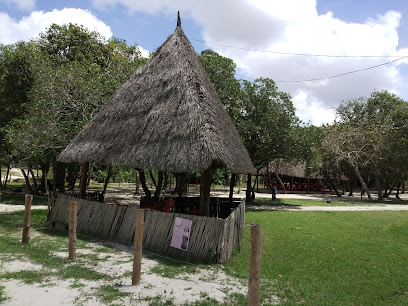
Nyumba ya Sanaa
Explore the heart of Tanzanian creativity at Nyumba ya Sanaa, an art center in Dar es Salaam that showcases local talent and vibrant cultural experiences.
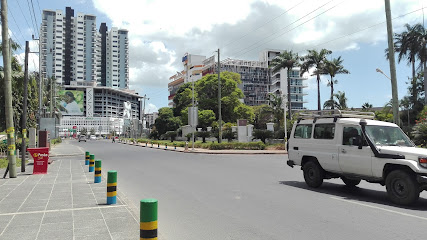
Sinda Island
Sinda Island: A serene escape with stunning beaches, rich culture, and thrilling water adventures, perfect for every explorer visiting Dar es Salaam.
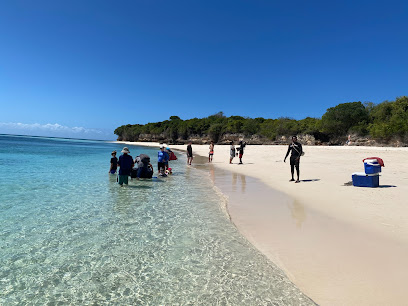
Coco Beach Cliff
Discover the beauty of Coco Beach Cliff, a serene coastal gem in Dar es Salaam, perfect for relaxation, cultural experiences, and stunning ocean views.
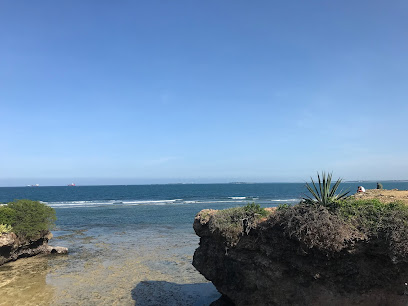
The Sea Cliff
Discover the breathtaking beauty of The Sea Cliff in Dar es Salaam, a serene park perfect for relaxation, nature walks, and stunning ocean views.
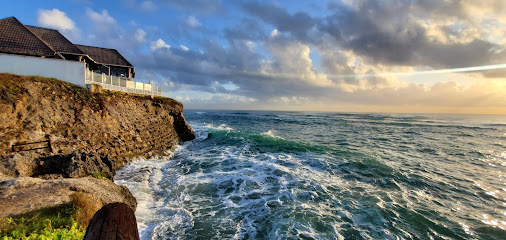
Baobab tree
Discover the majestic Baobab tree in Dar es Salaam, a symbol of resilience and beauty, surrounded by lush landscapes and rich cultural tales.
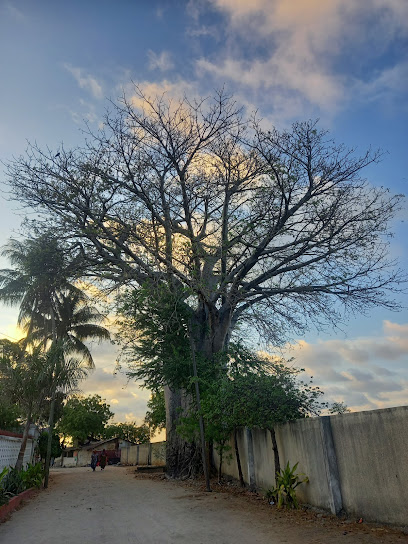
Slipway Sitting Area
Experience tranquility at Slipway Sitting Area in Dar es Salaam, a scenic spot for relaxation and cultural immersion by the Indian Ocean.
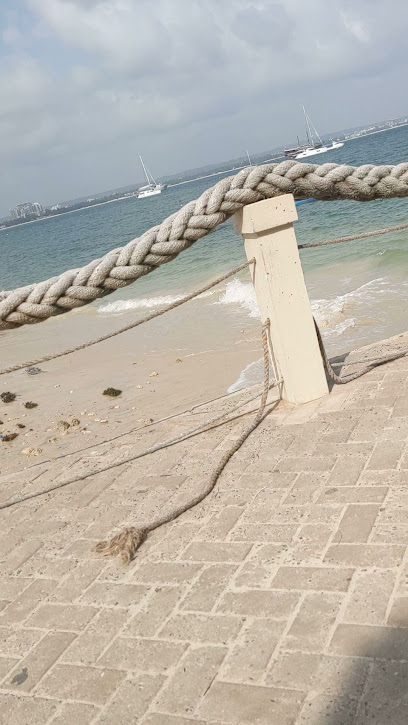
Animal Africa Tz
Discover the beauty and diversity of African wildlife at Animal Africa Tz, an immersive animal park in Dar es Salaam, Tanzania.

Essential places to dine
Olive Bar & Restaurant
Experience exquisite grilled dishes and delightful bakery treats at Olive Bar & Restaurant in Dar es Salaam's vibrant Masaki district.
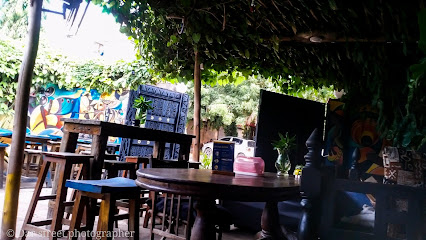
Bella Napoli Ristorante & Pizzeria
Experience authentic Italian cuisine at Bella Napoli Ristorante & Pizzeria in Masaki, Dar es Salaam – where every meal is a delightful journey.
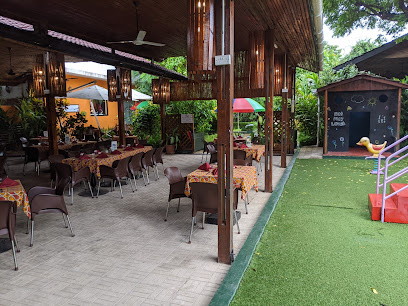
The Fishmonger Restaurant
Savor the freshest seafood in Dar es Salaam at The Fishmonger Restaurant, where ocean delights meet stunning coastal views.
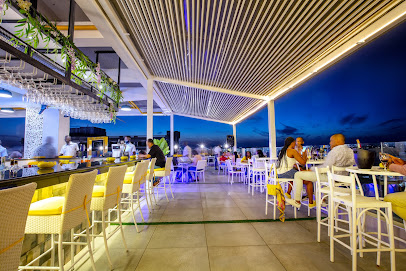
Veranda Restaurant
Discover culinary excellence at Veranda Restaurant in Dar es Salaam - where local flavors meet stunning views.
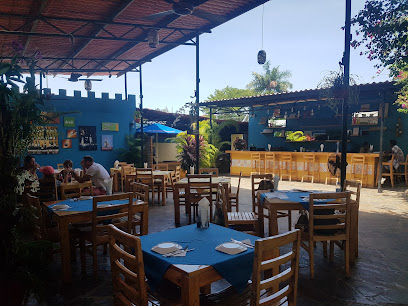
Moyo Kitchen & Bar
Discover Moyo Kitchen & Bar: A Culinary Haven in Dar es Salaam Offering Exquisite Local and International Cuisine in an Inviting Atmosphere.
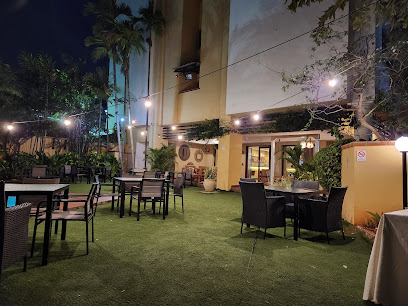
The Deck Kitchen and Bar
Experience vibrant dining at The Deck Kitchen and Bar in Dar es Salaam - where delicious food meets lively ambiance.
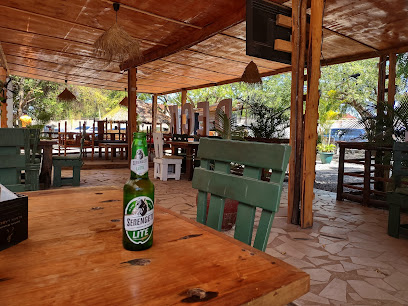
The Desi Bistro ~ Indian Restaurant & Bar
Discover authentic Indian cuisine at The Desi Bistro – where vibrant flavors meet unforgettable experiences in Dar es Salaam.
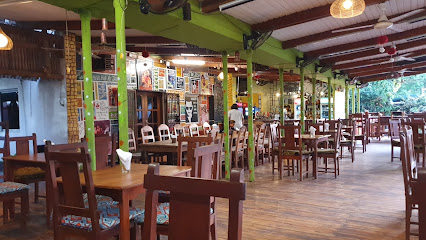
Taste of Mexico Restaurant
Experience authentic Mexican flavors in Dar es Salaam at Taste of Mexico Restaurant, where every dish is a celebration of culinary artistry.
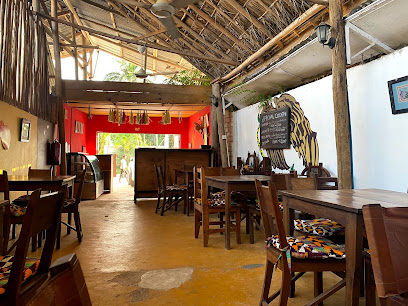
The Tribe
Experience culinary excellence at The Tribe in Dar es Salaam – where local flavors meet international cuisine in a vibrant atmosphere.
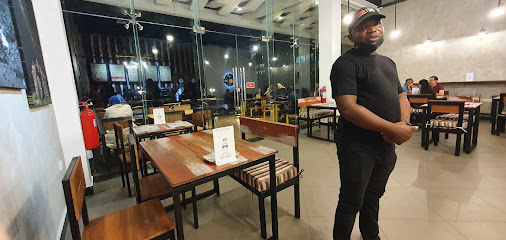
Ahlan Restaurant tz
Discover family-friendly dining at Ahlan Restaurant in Dar es Salaam with stunning ocean views and diverse culinary delights for all ages.
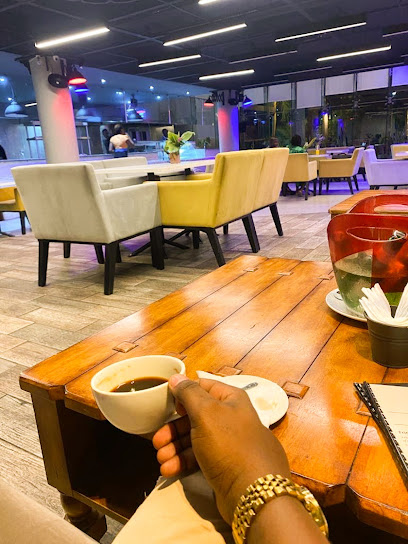
Markets, malls and hidden boutiques
Kipepeo
Discover Kipepeo, the premier boutique in Dar es Salaam for stylish children's clothing and a delightful shopping experience.
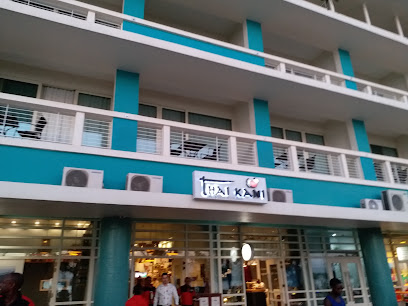
Shambhvi | Women Clothing - Apparel Store
Explore stylish women's clothing at Shambhvi Boutique, a must-visit fashion destination in Dar es Salaam that blends Western styles with local flair.
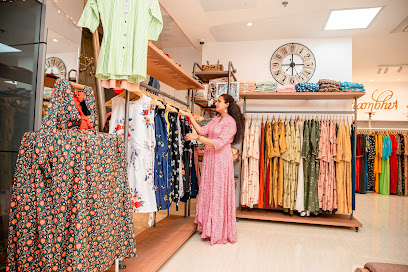
Ethereal Meraki Tanzania
Discover Ethereal Meraki Tanzania, a vibrant fashion accessories store in Dar es Salaam offering unique local designs and artisan-crafted pieces.
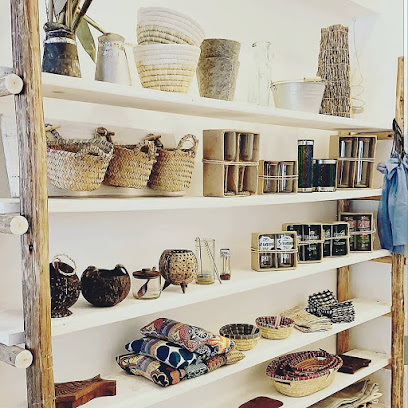
NAIPENDA TANZANIA - SLIPWAY
Explore the essence of Tanzanian craftsmanship at Naipenda Tanzania - Slipway, where unique boutiques meet stunning waterfront views.
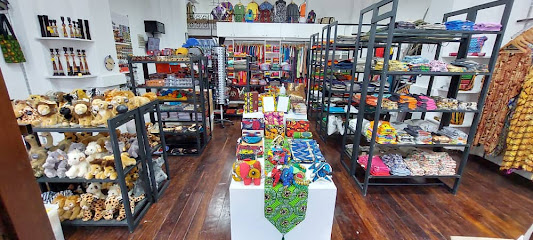
Bagicho Boutique
Experience the fusion of contemporary and traditional fashion at Bagicho Boutique in the heart of Dar es Salaam.

NIA Hand Crafts
Explore the vibrant world of Tanzanian craftsmanship at NIA Hand Crafts, where unique souvenirs and cultural treasures await.
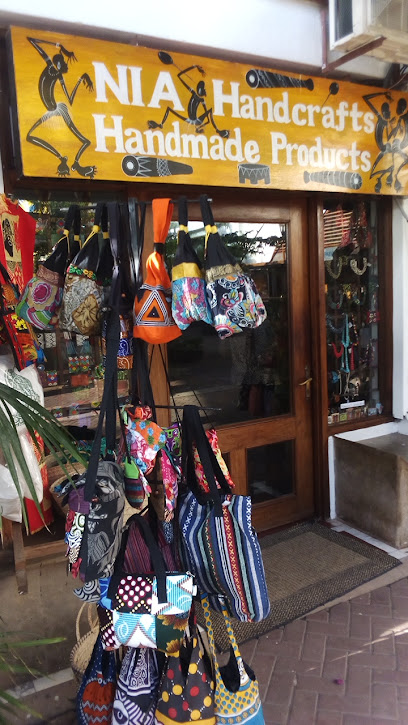
Kileo Retail Shop
Explore Kileo Retail Shop in Masaki, Dar es Salaam for exquisite home goods that reflect the beauty of Tanzanian craftsmanship.

Angels Shop
Discover unique fashion finds at Angels Shop in Dar es Salaam, showcasing vibrant styles and accessories that reflect Tanzania's culture.

Retail Shop
Explore the heart of Dar es Salaam at the Retail Shop on Mikoroshini Street, where local culture meets convenience.

MP Bargain Bazaar
Discover unique home goods and local crafts at MP Bargain Bazaar, a vibrant shopping experience in the heart of Dar es Salaam.
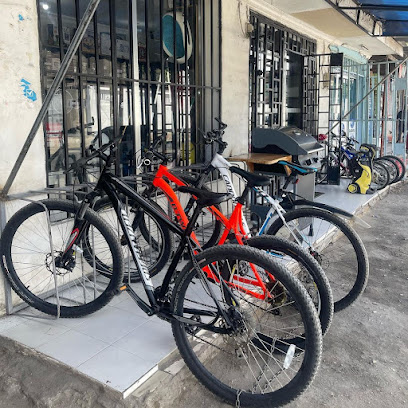
Essential bars & hidden hideouts
George & Dragon
Discover George & Dragon in Dar es Salaam - a vibrant pub and sports bar blending British cuisine with local charm.
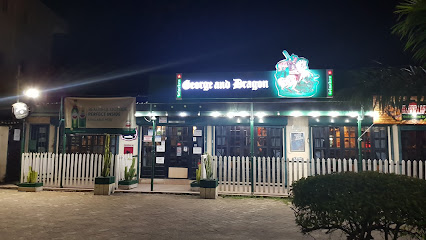
Olive Bar & Restaurant
Discover the perfect blend of grill and bakery delights at Olive Bar & Restaurant in Dar es Salaam's vibrant Masaki neighborhood.
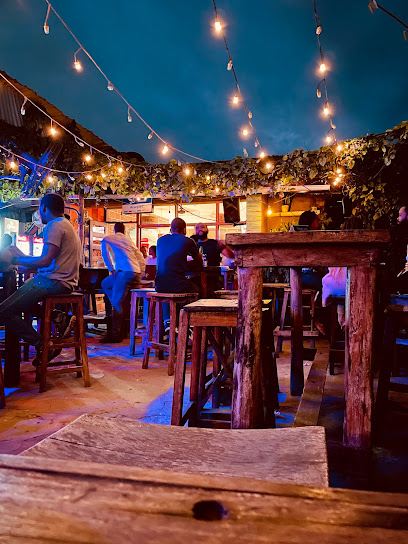
Havoc Nightspot
Experience the pulse of Dar es Salaam at Havoc Nightspot, where vibrant nightlife meets expertly crafted cocktails for unforgettable nights.
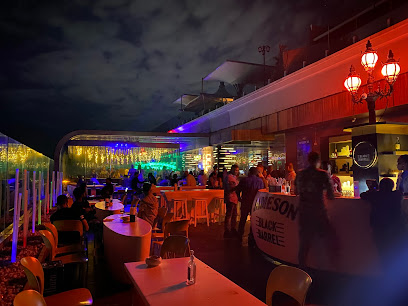
O'Donovan's Reggae Bar
Discover the rhythmic heart of Dar es Salaam at O'Donovan's Reggae Bar, where vibrant nightlife and Jamaican culture blend seamlessly.
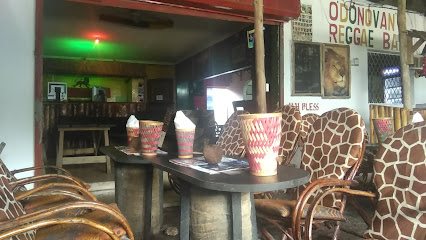
The Deck Kitchen and Bar
Experience the vibrant flavors and atmosphere at The Deck Kitchen and Bar, a premier dining destination in Dar es Salaam's Masaki area.
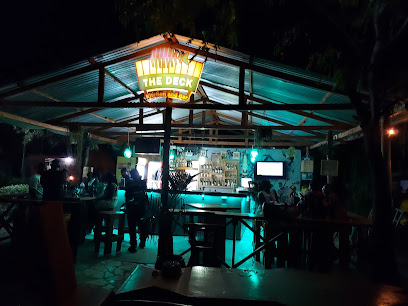
Zero Degree Restaurant & Bar
Discover the vibrant flavors and lively atmosphere at Zero Degree Restaurant & Bar in Dar es Salaam, a must-visit culinary destination.
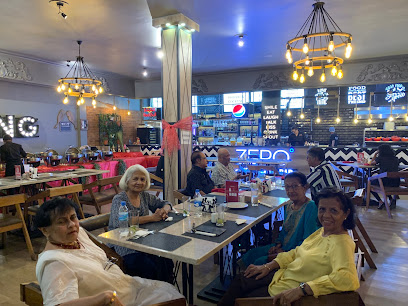
Bar in Dar
Discover vibrant nightlife and stunning coastal views at The Slipway Bar, a top destination in Dar es Salaam for tourists seeking relaxation and social fun.
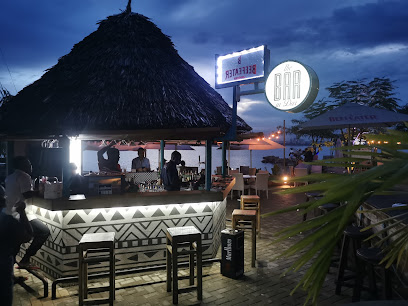
OTEA
Experience the vibrant nightlife of Dar es Salaam at OTEA, a lively bar offering an eclectic drink selection and a welcoming atmosphere for all.
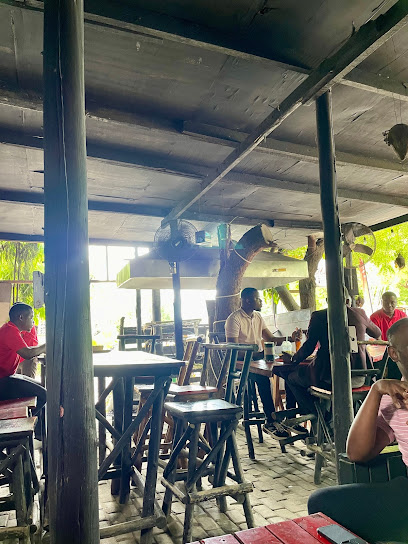
OCTAGON
Discover the vibrant Octagon bar in Dar es Salaam, where great drinks meet a lively atmosphere, perfect for tourists and locals alike.
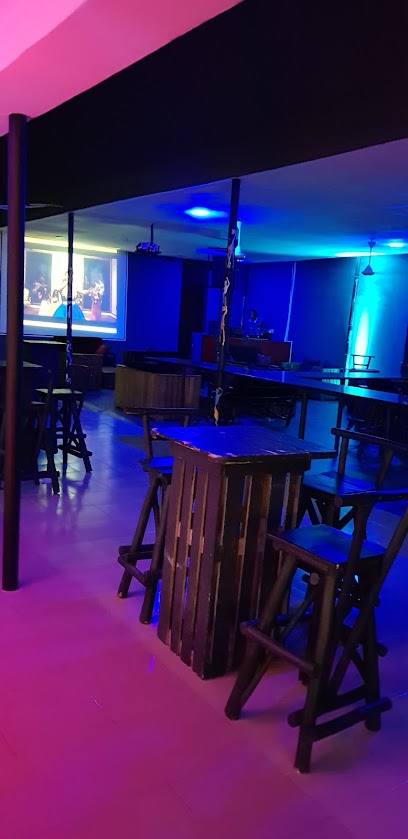
Eddie's bar
Experience the vibrant nightlife of Dar es Salaam at Eddie's Bar, where local flavors meet a lively atmosphere for an unforgettable evening.
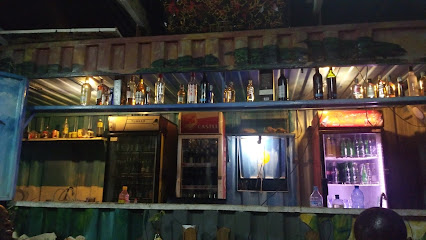
Local Phrases
-
- HelloHabari
[ha-ba-ree] - GoodbyeKwaheri
[kwa-he-ree] - YesNdio
[n-dee-o] - NoHapana
[ha-pa-na] - Please/You're welcomeTafadhali
[ta-fa-dha-lee] - Thank youAsante
[a-san-te] - Excuse me/SorrySamahani
[sa-ma-ha-nee] - How are you?U hali gani?
[oo-ha-lee-ga-nee] - Fine. And you?Nzuri. Na wewe?
[n-zu-ree. na-we-we] - Do you speak English?Unasema Kiingereza?
[oo-na-se-ma kee-in-ge-re-za] - I don't understandSielewi
[see-le-wee]
- HelloHabari
-
- I'd like to see the menu, pleaseNingependa kuona menyu, tafadhali
[nin-ge-pen-da kwo-na men-yu, ta-fa-dha-lee] - I don't eat meatSili nyama
[see-lee nya-ma] - Cheers!Mambo!
[mam-bo] - I would like to pay, pleaseNingependa kulipa, tafadhali
[nin-ge-pen-da ku-li-pa, ta-fa-dha-lee]
- I'd like to see the menu, pleaseNingependa kuona menyu, tafadhali
-
- Help!Msaada!
[m-sa-a-da] - Go away!Nenda zako!
[nen-da za-ko] - Call the Police!Piga simu polisi!
[pi-ga si-mu po-li-si] - Call a doctor!Piga simu daktari!
[pi-ga si-mu dak-ta-ree] - I'm lostNimepotea
[ni-me-po-te-a] - I'm illNinaumwa
[ni-na-um-wa]
- Help!Msaada!
-
- I'd like to buy...Ningependa kununua...
[nin-ge-pen-da ku-nu-nu-a] - I'm just lookingNatazama tu
[na-ta-za-ma tu] - How much is it?Bei ni kiasi gani?
[be-i ni kya-si ga-nee] - That's too expensiveHilo ni ghali sana
[he-lo ni gha-li sa-na] - Can you lower the price?Unaweza kupunguza bei?
[oo-na-we-za ku-pun-gu-za be-i]
- I'd like to buy...Ningependa kununua...
-
- What time is it?Saa ngapi?
[sa-a ngapi] - It's one o'clockSaa moja
[sa-a mo-ja] - Half past (10)Nusu saa kumi
[nu-su sa-a ku-mi] - MorningAsubuhi
[a-su-bu-hee] - AfternoonMchana
[m-cha-na] - EveningJioni
[jo-nee] - YesterdayJana
[ja-na] - TodayLeo
[le-o] - TomorrowKesho
[ke-sho] - 1Moja
[mo-ja] - 2Mbili
[m-bi-li] - 3Tatu
[ta-tu] - 4Nne
[n-ne] - 5Tano
[ta-no] - 6Sita
[si-ta] - 7Saba
[sa-ba] - 8Nane
[na-ne] - 9Tisa
[ti-sa] - 10Kumi
[ku-mi]
- What time is it?Saa ngapi?
-
- Where's a/the...?Iko wapi...?
[i-ko wa-pee] - What's the address?Anwani ni ipi?
[an-wa-ni ni ee-pee] - Can you show me (on the map)?Unaweza kunionyesha (kwenye ramani)?
[oo-na-we-za ku-ni-o-nye-sha kwe-ne ra-ma-nee] - When's the next (bus)?Basi lifuatalo ni saa ngapi?
[ba-si li-fwa-ta-lo ni sa-a nga-pi] - A ticket (to ....)Tiketi (kwenda ...)
[ti-ke-ti (kwen-da)]
- Where's a/the...?Iko wapi...?
History of Masaki
-
Masaki, located along the coastline of Dar es Salaam, was developed during the late 19th century when German colonial powers established the city as a trading hub. The area began attracting affluent settlers, leading to the construction of luxurious villas and residences. This period laid the groundwork for Masaki's reputation as an upscale neighborhood.
-
After Tanzania gained independence in 1961, Masaki continued to develop, becoming a favored locale for expatriates and diplomats. The neighborhood's proximity to the Indian Ocean and its tranquil environment contributed to its desirability. The influx of foreign investment led to further urban development, with modern amenities complementing the existing colonial architecture.
-
Masaki is known for its diverse cultural scene, influenced by its expatriate community and local residents. The neighborhood hosts various restaurants, galleries, and cultural institutions that showcase Tanzanian art, music, and cuisine. This blending of cultures reflects Dar es Salaam's broader identity as a port city that has historically welcomed traders and travelers from around the world.
-
In recent years, Masaki has emerged as an economic center within Dar es Salaam, with numerous businesses, boutiques, and international organizations setting up operations. The area has become vital for commerce and trade, attracting entrepreneurs and fostering a vibrant local economy. Its strategic coastal location enhances its role as a gateway for international trade.
-
As urbanization continues, Masaki has witnessed growing efforts toward environmental sustainability. Community initiatives focus on preserving the coastal ecosystem and promoting eco-friendly practices. This reflects a broader awareness in Dar es Salaam regarding environmental challenges and the importance of maintaining the natural beauty of Tanzania's coast.
Masaki Essentials
-
Masaki is well-connected to other neighborhoods in Dar es Salaam. If you are coming from the city center, you can take a taxi or a ride-sharing service like Uber or Bolt, which is the most convenient option. Public buses (daladalas) also operate routes to Masaki, but they can be crowded and less comfortable. If you're arriving from Julius Nyerere International Airport, taxis are available, and the journey usually takes about 30 minutes depending on traffic.
-
Masaki is a relatively small area, making it easy to explore on foot. However, for longer distances, taxis are widely available and affordable. There are no trains in the immediate area, but daladalas can be used for public transport, although they may not directly serve all parts of Masaki. Bicycles can also be rented from local shops, providing a pleasant way to explore the neighborhood and its waterfront.
-
Masaki is generally safe for tourists, but it is advisable to remain vigilant, especially at night. Areas around the beach can be problematic after dark, and petty crimes such as pickpocketing can occur in crowded places. Avoid walking alone late at night and keep valuables secure. It's best to stay in well-lit areas and be cautious when using ATMs.
-
In case of an emergency, dial 112 for police assistance or 999 for medical emergencies. Local hospitals and clinics are available, but it’s advisable to have travel insurance that covers medical expenses. For non-life-threatening health issues, pharmacies are scattered throughout Masaki, where you can find over-the-counter medications.
-
Fashion: Do dress modestly, especially in public areas and when visiting local markets. Don't wear overly revealing clothing. Religion: Do respect local customs and be aware of the local Islamic culture; avoid public displays of affection. Public Transport: Do be polite and offer your seat to elderly passengers. Don't eat or drink on public transport. Greetings: Do greet people with a friendly 'Jambo' (hello). A handshake is common, but be mindful of cultural differences. Eating & Drinking: Do try local foods and accept invitations to share meals. Don't waste food or be overly picky about offerings, as this can be seen as disrespectful.
-
To experience Masaki like a local, visit the local fish market early in the morning for the freshest catch. Engage with local vendors and try traditional Tanzanian dishes at street stalls. Spend time at the public beach for a relaxed atmosphere and to meet locals. Join a community event or festival if you can, as these are great ways to immerse yourself in the local culture and meet new people. Additionally, check out local art galleries and shops for unique souvenirs.
Nearby Cities to Masaki
-
Things To Do in Zanzibar City
-
Things To Do in Stone Town
-
Things To Do in Morogoro
-
Things To Do in Tanga
-
Things To Do in Diani Beach
-
Things To Do in Mombasa
-
Things To Do in Dodoma
-
Things To Do in Malindi
-
Things To Do in Iringa
-
Things To Do in Moshi
-
Things To Do in Arusha
-
Things To Do in Lamu
-
Things To Do in Singida
-
Things To Do in Nairobi
-
Things To Do in Mbeya



